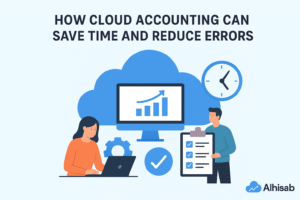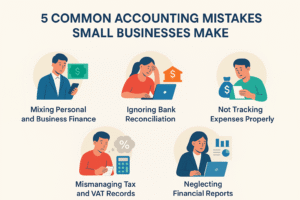How to Do Accounting for Nurseries Business
Introduction to Accounting for Nurseries Business
1. Set up a Bank Account for Your Daycare Business
Many business owners make the mistake of using their personal bank account for their business, but this can lead to confusion and costly accounting errors.
Limited liability companies (LLCs), partnerships, and companies must set up separate business accounts. Sole proprietors are not required to do so, but it is highly recommended.
You can go to most banks or credit unions and ask what they offer in terms of business bank accounts. In order to set up a business checking account, you will need:
- Personal identification, such as a driver’s license or passport
- Business license with the name of your business and the owner’s name(s)
- Social security number or employer identification number (EIN)
- Organizing documents filed with the state
- Monthly credit card revenue (if available)
Once set up, you will use your business bank account to hold your business revenue, cover operating costs, and allocate tax money. Some business owners decide to use several bank accounts for each of these tasks, as this helps keep your funds organized.
2. Track Your Expenses
Effective and accurate expense tracking is at the foundation of your small business bookkeeping. Expense tracking allows you to keep track of tax-deductible expenses, create accurate financial reports, monitor the growth of your business, and make smarter financial decisions.
First, create a system for organizing your receipts and other expense records. This may involve the use of spreadsheets or a written record, or employing the use of convenient accounting software. It’s a good habit to track every expense so you can keep an eye out for discrepancies and ensure that your business is always “in the black.”
The most common childcare business expenses include:
- Leasing a space
- Business licensing fees
- Education and training
- Payroll
- Indoor and outdoor play equipment
- Art supplies
- Toys
- Childcare supplies (like diapers and wipes)
- Cleaning supplies
- Snacks
- Transportation (optional)
Starting a home child care business is a great way to keep overhead low and you can qualify for some money-saving tax breaks. You can deduct the portion of your home that’s used for your daycare business, plus your home internet, cell phone, and vehicle (if used for business purposes).
3. Establish a Bookkeeping System
It may seem like there is a steep learning curve to mastering your small business accounting, but rest assured it gets easier as you go along. The best way to take the stress out of your accounting is to establish a bookkeeping system early on.
First, you’ll need to determine how you want to manage your books. You have a few methods to choose from, including:
- Do-it-yourself (DIY) using a written log or spreadsheets (like Excel) to track revenue, log expenses, and calculate estimated taxes
- Employ the use of automated accounting software like FreshBooks to send online invoices, track payments, monitor expenses, generate financial reports, and more
- Hire an outsourced bookkeeper who is either local or available online
- Hire an in-house bookkeeper and/or accountant to manage your business financials full-time
The main downside of the DIY method is that it can be quite tedious, while hiring help can be expensive if you’re just starting out.
Using affordable Accounting for Nurseries Business to manage your finances professionally is recommended—without the high costs of hiring a professional bookkeeper.
4. Monitor Your Income
5. Reconcile Your Transactions
Reconciling your business transactions involves:
- Looking for discrepancies between your bank statements and your receipts
- Checking your monthly account balance
- Calculating total revenue and expenses
- Contacting your bank and/or accountant to discuss any errors
6. Pay Quarterly Estimated Taxes
It’s recommended that you pay estimated quarterly taxes throughout the year to avoid any surprises come tax time.
With the help of your accounting software and/or an accountant, you can estimate how much you owe and pay on a quarterly basis instead of as one lump some at the end of the year. Knowing your taxes are covered will give you peace of mind.
You can pay your estimated quarterly taxes through a variety of methods, including:
- Signing up for the Electronic Federal Tax Payment System (EFTPS) online
- Paying online via the IRS website
- Paying using debit or credit card
- Sending a check or money order by mail to the IRS
Your tax rate will depend on your state but, in general, your taxes are based on a percentage of your profits (revenue-operating expenses). When you have a streamlined accounting system in place, you can easily determine your revenue, expenses, profit, payroll, and estimated taxes.
Navigating the financial aspects of running a daycare center can be challenging; if you struggle with accounting and tax obligations, consider seeking help from a professional accountant or tax preparer.
They can help you figure out how much you need to pay in taxes, set up the right way to pay, solve any problems, prepare your tax return, and make the process of paying taxes less stressful.
7. Send and Manage Your Invoices
While you love what you do, getting paid for your hard work is also a benefit of being a child care business owner. To get paid for your childcare services, you need a way to send detailed, professional invoices.
You can get started with a simple daycare invoice template or step it up with automated invoicing software. Creating invoices from scratch can be tedious, but invoicing software allows you to send invoices online, monitor payment status, send automated reminders, and much more.
You’ll be glad that you’re using software when it comes time to reconcile your accounts, check your total profits, and estimate your tax obligations.
You’ll have all of the information, expense receipts, paid invoices, etc. in one place. Simply log into your account, select “Create an Invoice,” add your client information and pricing, and click “Send.”
The right invoicing software can make sending invoices a breeze. You can typically send invoices via email, see your business financial statements at a glance and get a better idea of how your day care center is managing financially.
Your chosen Accounting for Nurseries Business software will provide detailed financial statements so you have everything you need come tax time.
8. Calculate Gross Margin

Improving your daycare’s gross margin is one of the first steps in increasing your income overall.
To calculate your gross margin, you need to know the total costs involved in providing your service—your cost of goods sold (COGS). You will also need to know your total sales revenue.
Here’s how to calculate gross margin:
Gross margin (%) = (revenue – COGS) / revenue
Knowing your gross margin will help you determine whether your day care center is thriving, just getting by, or operating at a loss.
This is essential information because then you know whether you need to implement changes to increase your profits. For example, you may need to increase your prices, attract more clients, or minimize your expenses.
9. Hire a Professional Accounting (Alhisab)
While it’s possible to handle the accounting for your daycare center on your own, it can be a much more streamlined process with the help of a professional accounting service. They can assist in setting up your accounting system, reconciling your accounts, estimating taxes, and providing consulting on managing your business finances.
As your business grows or you plan for future growth, investing in an accounting service now can save you a significant amount of stress when managing a larger number of transactions. In the long run, working with a professional service may be the more cost-effective option as they can help you maximize tax deductions and avoid costly mistakes.
In buying an accounting service, you get:
- Someone to set you up with the perfect accounting software for your business
- The ability to ask questions to better understand the financial health of your business
- A professional who is able to identify any accounting problems and resolve issues you might not have noticed
- Reassurance that your daycare accounting is being done properly so you can avoid any issues come tax time
- Someone to advise you on how to improve your existing system and/or better plan for the future
- Accurate, easy-to-understand reports every single month




